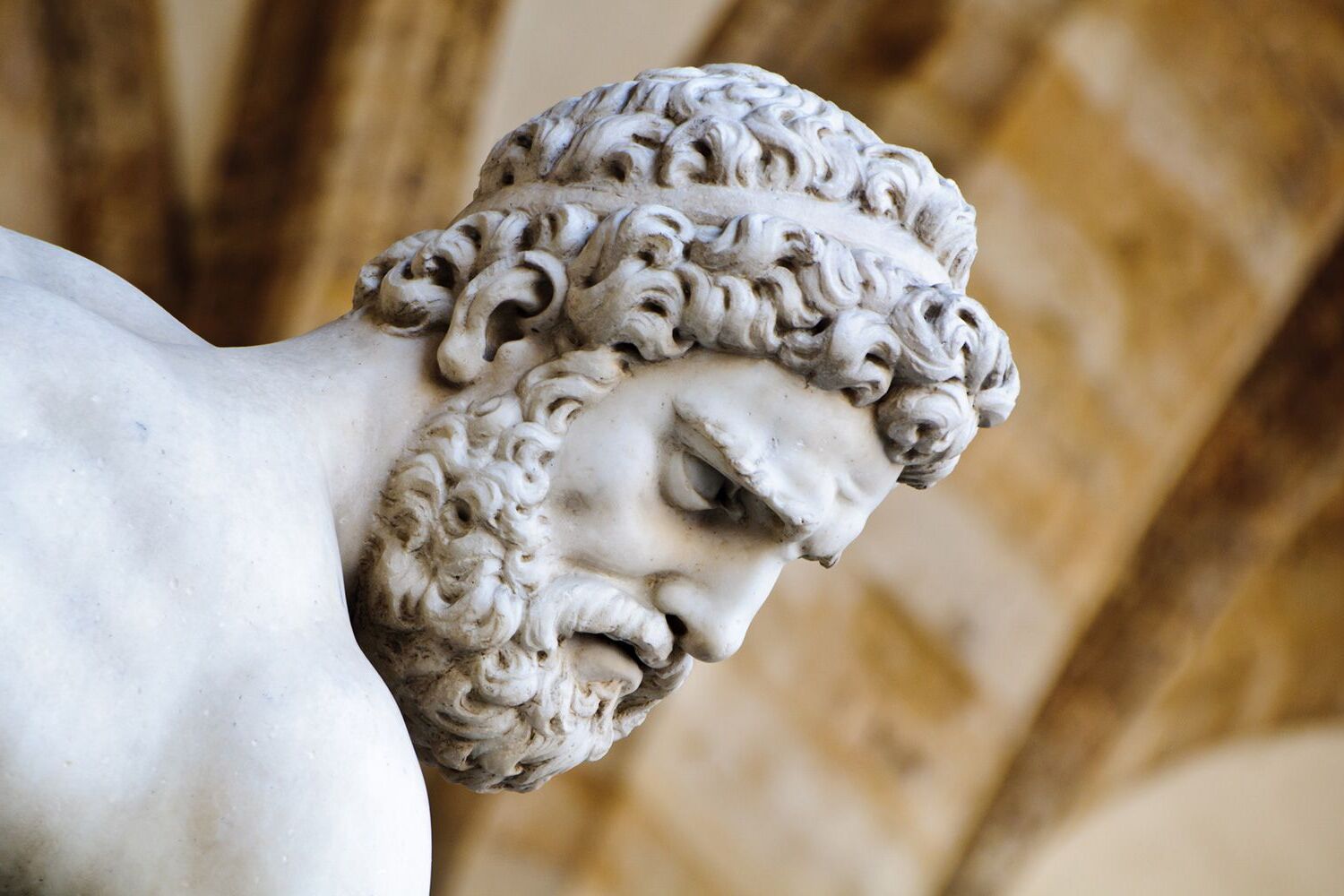
Greek mythology is a treasure chest of stories that have fascinated people for centuries. These myths are not just tales of gods and heroes; they offer insights into ancient Greek culture, beliefs, and values. Ever wondered why Zeus is often depicted with a thunderbolt or why Athena sprang fully grown from Zeus's head? These myths explain natural phenomena, human behavior, and even the origins of the world. From the mighty Olympians to the tragic heroes, Greek mythology is filled with characters and stories that continue to captivate us. Ready to dive into the world of Greek gods, goddesses, and legendary creatures? Let's explore 31 intriguing facts about Greek mythology that will leave you amazed and wanting to learn more.
Key Takeaways:
- Greek mythology is a collection of captivating stories about gods, heroes, and mythical creatures. It has influenced language, art, and culture throughout history, and continues to inspire modern media and entertainment.
- The ancient Greeks believed that the world was created from Chaos, and their myths have shaped Western culture. From Zeus and Hercules to the Minotaur and the Hydra, these timeless tales continue to captivate and inspire people today.
The Origins of Greek Mythology
Greek mythology is a rich tapestry of stories and characters that have fascinated people for centuries. These myths explain the origins of the world, the lives of gods and heroes, and the nature of human existence. Here are some intriguing facts about Greek mythology:
- Greek mythology began as an oral tradition, passed down through generations before being written down by poets like Homer and Hesiod.
- The ancient Greeks believed that the world was created from a primordial void called Chaos.
- According to myth, the first gods emerged from Chaos: Gaia (Earth), Tartarus (the Underworld), and Eros (Love).
The Pantheon of Greek Gods
The Greek pantheon consists of a multitude of gods and goddesses, each with their own unique stories and attributes. These deities played a central role in Greek religion and culture.
- Zeus, the king of the gods, ruled over Mount Olympus and wielded a powerful thunderbolt.
- Hera, Zeus's wife and sister, was the goddess of marriage and childbirth.
- Poseidon, brother of Zeus, was the god of the sea and earthquakes.
- Hades, another brother of Zeus, ruled the Underworld and was associated with death and the afterlife.
- Athena, the goddess of wisdom and war, was born fully grown and armored from Zeus's forehead.
- Apollo, the god of music, prophecy, and healing, was also associated with the sun.
- Artemis, Apollo's twin sister, was the goddess of the hunt and the moon.
- Aphrodite, the goddess of love and beauty, was said to have been born from the sea foam.
- Ares, the god of war, was known for his fierce and aggressive nature.
- Hephaestus, the god of blacksmiths and fire, was the only Olympian god who was physically imperfect.
Heroes and Mortals in Greek Mythology
Greek mythology is filled with tales of heroes and mortals who performed extraordinary feats and faced incredible challenges. These stories often conveyed moral lessons and cultural values.
- Hercules, known for his incredible strength, completed twelve nearly impossible labors as penance for his sins.
- Perseus, a demigod, famously slew the Gorgon Medusa and saved Andromeda from a sea monster.
- Theseus, the hero of Athens, defeated the Minotaur in the labyrinth of Crete.
- Achilles, a key figure in the Trojan War, was nearly invincible except for his heel.
- Odysseus, the clever king of Ithaca, took ten years to return home after the Trojan War, facing numerous trials along the way.
- Jason led the Argonauts on a quest for the Golden Fleece, encountering many dangers and adventures.
Mythical Creatures and Beasts
Greek mythology features a wide array of mythical creatures and beasts, each with their own unique characteristics and stories.
- The Minotaur, a creature with the body of a man and the head of a bull, lived in the labyrinth on Crete.
- The Hydra, a serpent-like monster with multiple heads, grew two new heads for each one that was cut off.
- The Chimera, a fire-breathing creature, had the body of a lion, the head of a goat, and the tail of a serpent.
- The Sphinx, with the body of a lion and the head of a woman, posed riddles to travelers and devoured those who could not answer.
- The Sirens, dangerous creatures with the bodies of birds and the heads of women, lured sailors to their doom with their enchanting songs.
- The Cyclopes, one-eyed giants, were skilled blacksmiths who forged Zeus's thunderbolts.
The Influence of Greek Mythology
Greek mythology has had a profound impact on Western culture, influencing literature, art, and even modern language.
- Many English words and phrases have roots in Greek mythology, such as "Achilles' heel" and "Herculean task."
- Greek myths have inspired countless works of literature, from ancient plays by Sophocles and Euripides to modern novels and films.
- The Renaissance saw a revival of interest in Greek mythology, with artists like Botticelli and Michelangelo drawing inspiration from these ancient stories.
- Many constellations in the night sky are named after characters and creatures from Greek mythology, such as Orion and Pegasus.
- Greek mythology continues to be a popular subject in modern media, with numerous books, movies, and TV shows exploring these timeless tales.
- The Olympic Games, which originated in ancient Greece, were held in honor of Zeus and featured athletic competitions that celebrated human strength and skill.
The Enduring Legacy of Greek Mythology
Greek mythology's influence remains strong today. From literature to movies, these ancient stories continue to shape our culture. Characters like Zeus, Athena, and Hercules are household names, symbolizing power, wisdom, and strength. Myths explain natural phenomena, teach moral lessons, and entertain. They offer a glimpse into the beliefs and values of ancient Greece, showing how people made sense of the world around them.
Modern adaptations keep these tales alive, ensuring new generations appreciate their timeless appeal. Whether it's a blockbuster film or a bestselling novel, Greek myths inspire creativity and imagination. They remind us of humanity's shared heritage and the universal themes that connect us all.
So next time you encounter a reference to Greek mythology, remember its rich history and lasting impact. These stories aren't just ancient relics; they're living, breathing parts of our cultural fabric.
Frequently Asked Questions
Was this page helpful?
Our commitment to delivering trustworthy and engaging content is at the heart of what we do. Each fact on our site is contributed by real users like you, bringing a wealth of diverse insights and information. To ensure the highest standards of accuracy and reliability, our dedicated editors meticulously review each submission. This process guarantees that the facts we share are not only fascinating but also credible. Trust in our commitment to quality and authenticity as you explore and learn with us.


